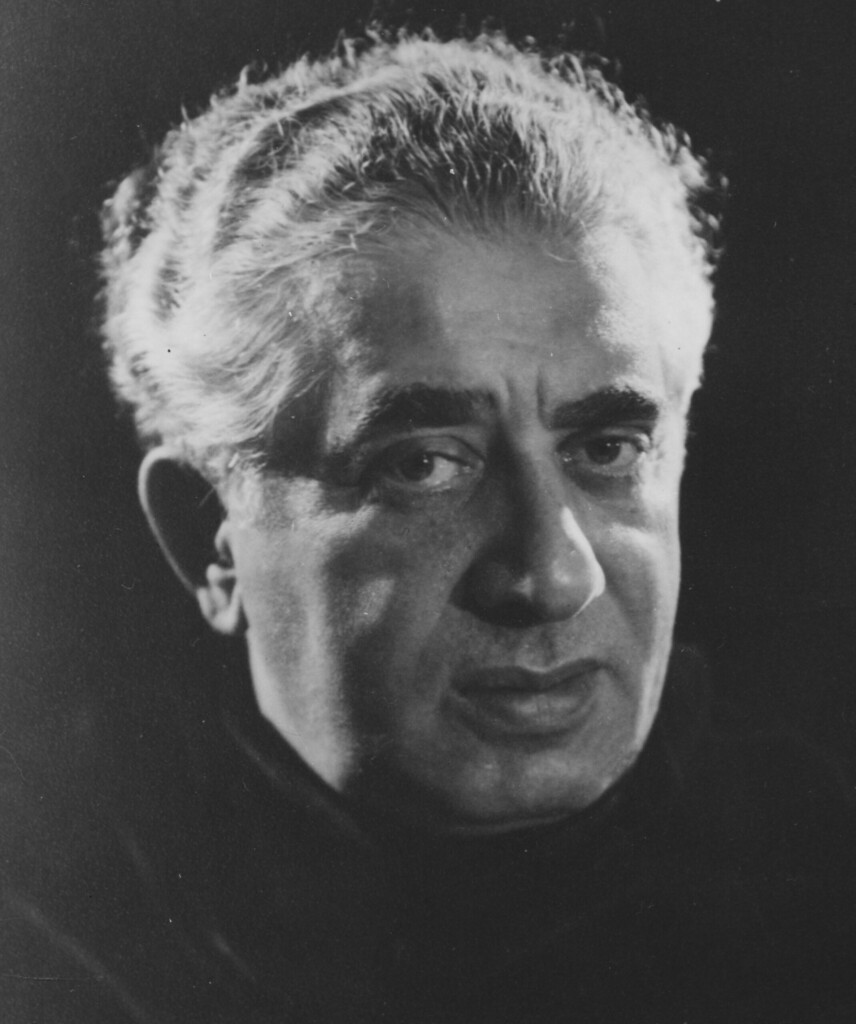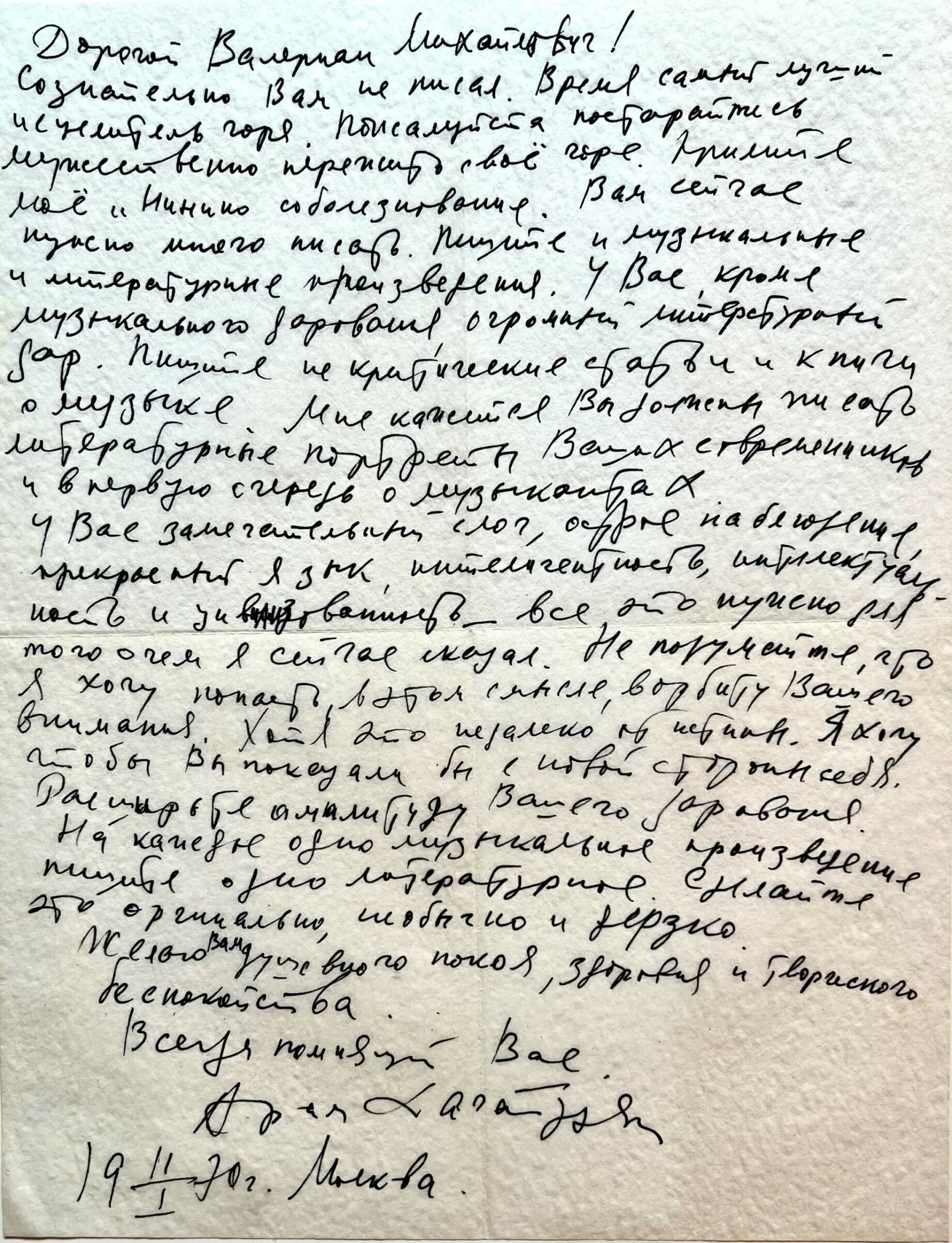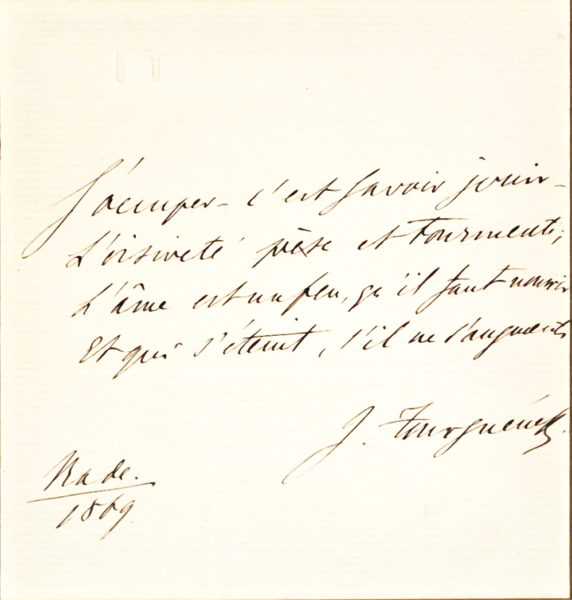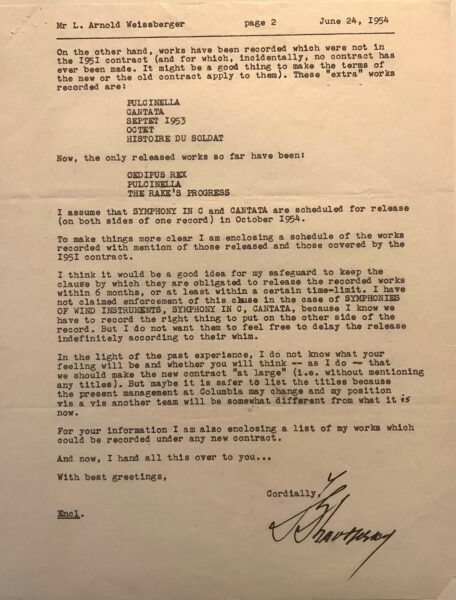KHACHATURIAN, ARAM ILICH. (1903-1978). Soviet-Armenian composer best known for his Piano Concerto and his ballet Gayane which includes the enormously popular and rhythmic Saber Dance. ALS. (“Aram Khachaturian”). 1p. 4to. Moscow, January 11, 1970. To Russian critic and composer VALERIAN MIKHAILOVICH BOGDANOV-BEREZOVSKY (1903-1971). In Russian with translation.
“I didn’t write to you on purpose. Time is the best healer of grief. Please try to bravely survive your grief. Please accept my and Nina’s condolences.
You need to write a lot now. Write both musical and literary works. In addition to musical talent, you have huge literary talent as well. Do not write critical articles and books about music. Seems to me you should write literary portraits of contemporaries, especially musicians. Your style is wonderful, your observations are subtle. You have a remarkable way of expressing yourself. You are intelligent, highly intellectual and a sensitive person. All that is necessary regarding what I just said. Please do not think that I am trying to get myself into the orbit of your attention. Although it is not far from the truth. I just want you to express your new side. Please extend the power of your talents. For each musical work, write a literary one. And do it ingeniously, unconventionally, and boldly. I wish you inner peace, health, and creative anxiety…”

Aram Ilich Khachaturian
Of Khachaturian’s successful, award-winning musical career, which included the Stalin Prize in 1941, the People’s Artist of the USSR Prize in 1954, and the Lenin Prize in 1959, fellow Russian composer Dmitri Shostakovich wrote, “Khachaturian’s individuality – the result of his great creative gifts – reveals itself not only through his idiom, leaving his imprint on every bar; this individuality is broader and implies something more than musical technology; it also comprises the composer’s outlook which is basically optimistic,” (The New Grove Dictionary). Our letter, penned toward the end of Khachaturian’s life, well reflects this outlook. Khachaturian continued composing through the last decade of his life and, from 1974-1976, composed an instrumental trilogy comprised of a Sonata-Fantasia for solo cello written, a Sonata-Monologue for unaccompanied violin and a Sonata-Song for solo viola.
A friend and contemporary of Shostakovich, with whom he attended St. Petersburg Conservatory, Bogdanov-Berezovsky earned a reputation as a critic while also teaching at the Leningrad Conservatory and composing such works as the operas Granitsa (The Frontier) and Leningradtsï (The Leningraders), written during the Nazi siege of that city during World War II. He was later influential in the Leningrad Institute for Scholarship and Research in Theatre and Music, the Leningrad Malïy Theatre, and headed the musicology and criticism section of the Leningrad’s Composers’ Union.
Exuberantly penned in black ink; folded and in very fine condition.




